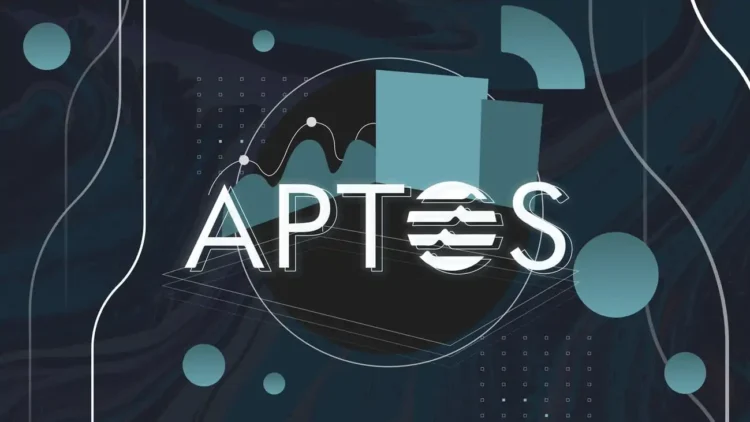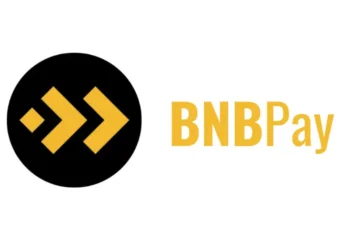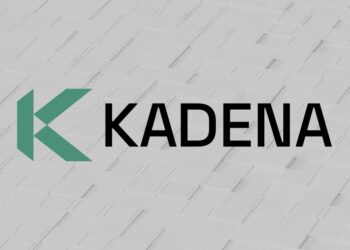Aptos Labs’ Layer 1 blockchain platform went live on October 17 after months of development and testing.
Aptos confirmed the news in a Medium post, which described the launch as “step one in a long journey to create universal and fair access to decentralized applications for billions of people through a safe, scalable, and upgradable blockchain.”
The project differs from other blockchain networks because it employs the Move programming language and can be updated.
The company has previously acknowledged a gap in the cryptocurrency space: the need for a more innovative and flexible blockchain that can serve the needs of billions of people today and in the future.
Aptos is the most recent high-profile effort to create the ideal blockchain for smart contracts, the code that powers the vast ecosystem of DAOs, NFTs, and DeFi. The blockchain has been dubbed a “Solana killer.”
While Ethereum has made considerable progress since the Merge, its competitors, such as Solana, are making inroads with much faster transaction speeds. However, the latter has experienced occasional outages, which has opened the door for newer players, such as Aptos, to enter the fray.
In 2019, Facebook (now known as Meta) launched a blockchain initiative codenamed Libra, which was later rebranded as Diem.
The project was halted due to regulatory pressure and heavy criticism from the cryptocurrency community. However, its creators liked its key feature, “parallel execution,” which was a way to order and combine transactions to speed up the process.
Aptos claims to be able to process 130,000 transactions per second, while Ethereum can only process 30.
The Move programming language, which is a key feature of the Aptos ecosystem, is also crucial due to the importance it places on scarcity and access control.
Development of the Aptos Blockchain
Mo Shaikh and Avery Ching founded Aptos Labs to develop the Aptos blockchain.
According to the project’s white paper, Aptos is “a safe, scalable, and upgradeable Web3 infrastructure.”
According to the white paper, Aptos “offers new and novel innovations in consensus, smart contract design, system security, performance, and decentralization.” Other key points from the whitepaper are as follows:
- The Aptos blockchain has built-in support for the Move programming language, which is used internally for executing transactions quickly and securely. Additional protections for contract invariants and behaviour are provided by the Move prover, a formal verifier for Move language smart contracts. Because developers are paying more attention to security, their software can handle attacks better.
- The Aptos data model allows for versatile key management and hybrid custodial arrangements. Before a transaction is signed, light client protocols that are useful and clear help make the environment safer for users.
- The Aptos blockchain makes use of a pipelined and modular approach for the essential stages of transaction processing to achieve high throughput and low latency. Transacting, ordering blocks’ metadata, running transactions in parallel, storing data in batches, and validating the ledger are all processes that happen simultaneously. This method gets the most out of the hardware, uses all the available physical resources, and lets many things run simultaneously.
- The Aptos blockchain does not impose such limitations on developers, unlike other parallel execution engines that break transaction atomicity by requiring upfront knowledge of the data to be read and written. Throughput and latency for practical applications can be improved and development time reduced because they can efficiently support atomicity with arbitrarily complex transactions.
- The Aptos modular architecture design optimizes frequent and instant upgrades and supports client flexibility. Also, the Aptos blockchain has built-in on-chain change management protocols that make it easy to use new technologies and seamlessly support new Web3 use cases.
- The Aptos blockchain is trying out plans to scale beyond the performance of a single validator. Its modular design and parallel execution engine support the internal sharding of a validator, and homogeneous state sharding offers the possibility of horizontal throughput scalability without making things more complicated for node operators.
Supported By Web3 Investors
In March, Aptos received $200 million in funding from investors, including FTX Ventures, Binance Labs, Tiger Global, Coinbase Ventures, and PayPal Ventures, among others.
Four months later, Aptos closed a $150 million Series A funding round led by FTX Ventures, Jump Crypto, and Binance Labs. The round resulted in a valuation of more than $2 billion.
On Wednesday, October 19, FTX announced that it would begin trading Aptos Labs’ APT token.
Aptos Tokenomics
On Tuesday, October 18, the Aptos Foundation released a tokenomics overview of the Aptos protocol. At the time of the mainnet launch, 1 billion Aptos tokens ($APT) were in circulation.

Binance Plans to List $APT
Binance announced in a blog post that Aptos ($APT) would be listed and available for trading in the following spot trading pairs (APT/BTC, APT/BUSD, and APT/USDT) on October 19 at 1:00 a.m. UTC.
The native token of the Aptos blockchain, $APT, will also be listed on the following crypto exchanges:

The Crypto Community’s Reaction to the Aptos L1 Blockchain Mainnet Launch
The crypto community on Twitter appears to be generally skeptical due to all of the hype, a misunderstanding about how fast the Aptos network is, and the fact that information about the Aptos tokenomics was not available when the Aptos mainnet launched.
Some, however, are genuinely excited about Aptos, which OKX describes as “one of the “one of the HOTTEST blockchains on the market.”
The Aptos Ecosystem

Disclaimer: This article is intended solely for informational purposes and should not be considered trading or investment advice. Nothing herein should be construed as financial, legal, or tax advice. Trading or investing in cryptocurrencies carries a considerable risk of financial loss. Always conduct due diligence.
If you would like to read more news articles like this, visit DeFi Planet and follow us on Twitter, LinkedIn, Facebook, and Instagram.
“Take control of your crypto portfolio with MARKETS PRO, DeFi Planet’s suite of analytics tools.”





















